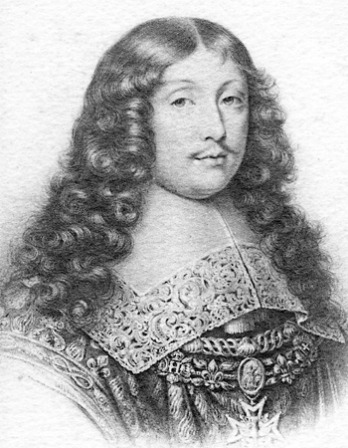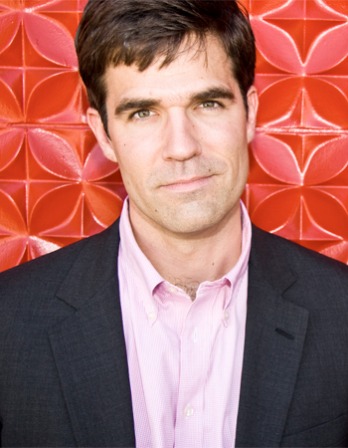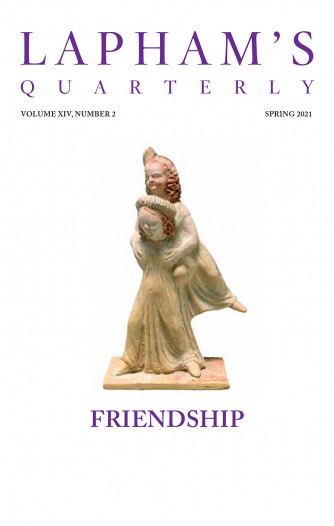If you must take care that your opinions do not differ in the least from those of the person with whom you are talking, you might just as well be alone.
—Yoshida Kenko, 1330Wherein Man Has Failed
The fetish of women’s suffrage.
We boast of the age of advancement, of science, and progress. Is it not strange, then, that we still believe in fetish worship? True, our fetishes have different form and substance, yet in their power over the human mind they are still as disastrous as were those of old.
Our modern fetish is universal suffrage. Those who have not yet achieved that goal fight bloody revolutions to obtain it, and those who have enjoyed its reign bring heavy sacrifice to the altar of this omnipotent deity. Woe to the heretic who dares question that divinity! Woman’s demand for equal suffrage is based largely on the contention that woman must have the equal right in all affairs of society. No one could, possibly, refute that, if suffrage were a right. Alas, for the ignorance of the human mind, which can see a right in an imposition. Or is it not the most brutal imposition for one set of people to make laws that another set is coerced by force to obey? Yet woman clamors for that “golden opportunity” that has wrought so much misery in the world, and robbed man of his integrity and self-reliance, an imposition that has thoroughly corrupted the people and made them absolute prey in the hands of unscrupulous politicians.
I am not opposed to woman suffrage on the conventional ground that she is not equal to it. I see neither physical, psychological, nor mental reasons why woman should not have the equal right to vote with man. But that cannot possibly blind me to the absurd notion that woman will accomplish that wherein man has failed. If she would not make things worse, she certainly could not make them better. To assume, therefore, that she would succeed in purifying something which is not susceptible of purification is to credit her with supernatural powers. Since woman’s greatest misfortune has been that she was looked upon as either angel or devil, her true salvation lies in being placed on earth, namely, in being considered human and therefore subject to all human follies and mistakes. Are we, then, to believe that two errors will make a right? Are we to assume that the poison already inherent in politics will be decreased if women were to enter the political arena? The most ardent suffragists would hardly maintain such a folly.
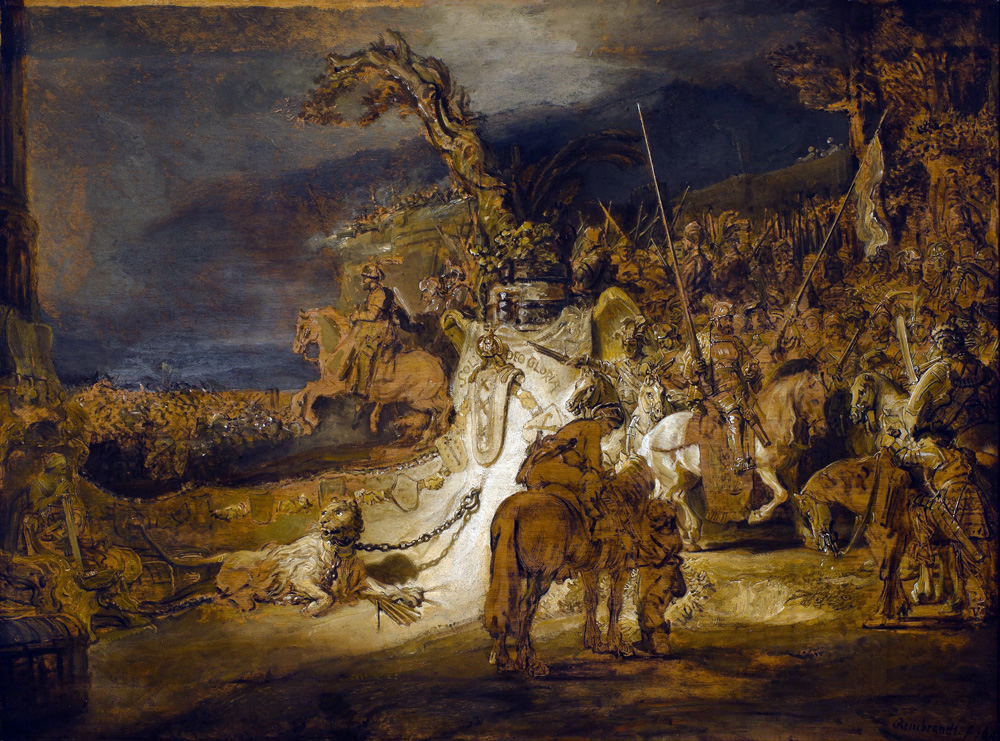
The Concord of the State, by Rembrandt van Rijn, 1637–1645. Museum Boijmans Van Beuningen, Rotterdam.
As a matter of fact, the most advanced students of universal suffrage have come to realize that all existing systems of political power are absurd, and are completely inadequate to meet the pressing issues of life. This view is also borne out by a statement of one who is herself an ardent believer in woman suffrage, Dr. Helen L. Sumner. In her able work Equal Suffrage, she says, “In Colorado we find that equal suffrage serves to show in the most striking way the essential rottenness and degrading character of the existing system.”
But, say our suffrage devotees, look at the countries and states where female suffrage exists. See what woman has accomplished—in Australia, New Zealand, Finland, the Scandinavian countries, and in our own four states Idaho, Colorado, Wyoming, and Utah. Distance lends enchantment—or, to quote a Polish formula—“it is well where we are not.” Thus one would assume that those countries and states are unlike other countries or states, that they have greater freedom, greater social and economic equality, a finer appreciation of human life, deeper understanding of the great social struggle, with all the vital questions it involves for the human race.
The women of Australia and New Zealand can vote and help make the laws. Are the labor conditions better there than they are in England, where the suffragettes are making such a heroic struggle? Does there exist a greater motherhood, happier and freer children than in England? Is woman there no longer considered a mere sex commodity? Has she emancipated herself from the puritanical double standard of morality for men and women? Certainly none but the ordinary female stump politician will dare answer these questions in the affirmative.
Finland has given women equal suffrage, nay, even the right to sit in Parliament. Has that helped to develop a greater heroism, an intenser zeal than that of the women of Russia? Finland, like Russia, smarts under the terrible whip of the bloody tsar. Where are the Finnish Perovskayas, Spiridonovas, Figners, Breshkovskayas? Where are the countless numbers of Finnish young girls who cheerfully go to Siberia for their cause? Finland is sadly in need of heroic liberators. Why has the ballot not created them? The only Finnish avenger of his people was a man, not a woman, and he used a more effective weapon than the ballot.
As to our own states where women vote and which are constantly being pointed out as examples of marvels, what has been accomplished there through the ballot that women do not to a large extent enjoy in other states, or that they could not achieve through energetic efforts without the ballot?
Woman, essentially a purist, is naturally bigoted and relentless in her effort to make others as good as she thinks they ought to be. Thus, in Idaho, she has disenfranchised her sister of the street and declared all women of “lewd character” unfit to vote. “Lewd” not being interpreted, of course, as prostitution in marriage. It goes without saying that illegal prostitution and gambling have been prohibited. In this regard the law must needs be of feminine gender: it always prohibits. Therein all laws are wonderful. They go no further, but their very tendencies open all the floodgates of hell. Prostitution and gambling have never done a more flourishing business than since the law has been set against them.
In Colorado the puritanism of woman has expressed itself in a more drastic form. “Men of notoriously unclean lives and men connected with saloons have been dropped from politics since women have the vote.” Could all the Puritan fathers have done more? I wonder how many women realize the gravity of this would-be feat. I wonder if they understand that it is the very thing that, instead of elevating woman, has made her a political spy, a contemptible pry into the private affairs of people, not so much for the good of the cause, but because, as a Colorado woman said, “They like to get into houses they have never been in and find out all they can, politically and otherwise.” Yes, and into the human soul and its minutest nooks and corners. For nothing satisfies the craving of most women so much as scandal. And when did she ever enjoy such opportunities as are hers, the politician’s?
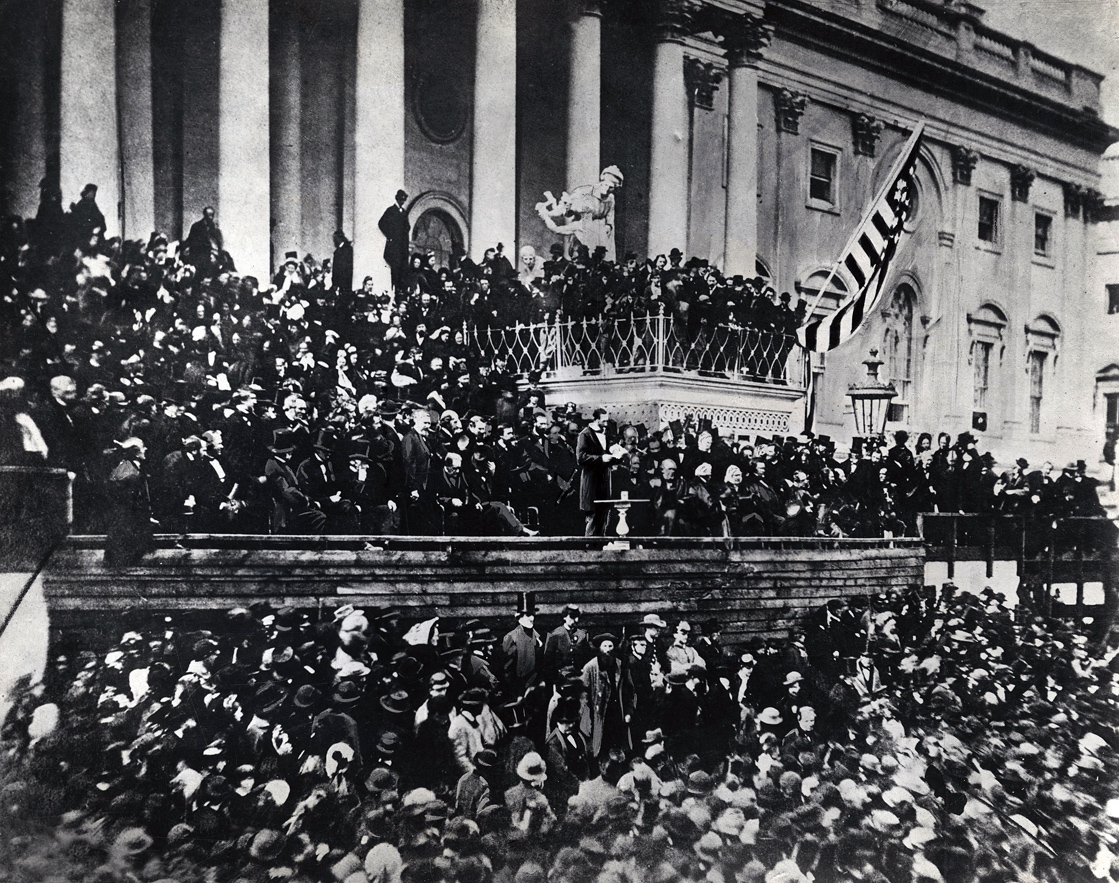
Abraham Lincoln delivering his second inaugural address, 1865. Photograph by Alexander Gardner.
“Notoriously unclean lives and men connected with the saloons.” Certainly, the lady vote-gatherers cannot be accused of much sense of proportion. Granting even that these busybodies can decide whose lives are clean enough for that eminently clean atmosphere, politics, must it follow that saloon keepers belong to the same category? Unless it be American hypocrisy and bigotry, so manifest in the principle of Prohibition, which sanctions the spread of drunkenness among men and women of the rich class, yet keeps vigilant watch on the only place left to the poor man. If no other reason, woman’s narrow and purist attitude toward life makes her a greater danger to liberty wherever she has political power. Man has long overcome the superstitions that still engulf woman. In the economic competitive field, man has been compelled to exercise efficiency, judgment, ability, competency. He therefore had neither time nor inclination to measure everyone’s morality with a puritanical yardstick. In his political activities, too, he has not gone about blindfolded. He knows that quantity and not quality is the material for the political grinding mill, and unless he is a sentimental reformer or an old fossil, he knows that politics can never be anything but a swamp.

Emma Goldman
From “Woman Suffrage.” Born in Lithuania in 1869, Goldman immigrated to the U.S. in 1885, was arrested for inciting a riot in 1893, founded the periodical Mother Earth in 1906, and published Anarchism and Other Essays in 1910. She lectured on the importance of European playwrights, among them Henrik Ibsen and August Strindberg, and on the concept of “free love.” Goldman was jailed in 1917 for her activities in opposition to U.S. involvement in World War I and was deported to the Soviet Union in 1919. She died in 1940.
